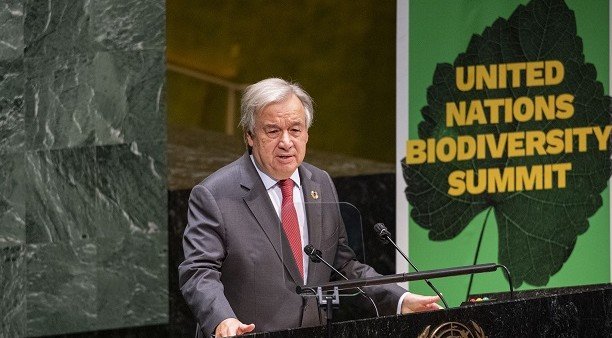By Matik Kueth
United Nations Secretary-General António Guterres has issued a stark warning about the accelerating loss of biodiversity, calling it a global crisis that no nation can afford to ignore.
Marking the International Day for Biological Diversity on Thursday, Guterres said the destruction of nature is happening at a “lightning pace,” driven by pollution, climate change, habitat degradation, and the short-term exploitation of natural resources.
“Biodiversity is the foundation of life on Earth and a key pillar of sustainable development,” he said, urging countries to urgently rethink their relationship with the natural world.
He emphasized that no country, regardless of wealth or power, can tackle this crisis alone or thrive without the ecological diversity that sustains life.
Guterres called for the swift and full implementation of the Kunming-Montreal Global Biodiversity Framework, a landmark international agreement to halt and reverse biodiversity loss by 2030. This includes adopting national biodiversity action plans, increasing conservation funding, ending environmentally harmful subsidies, and empowering Indigenous Peoples, women, youth, and local communities.
The warnings come as scientists estimate that one million species face extinction, while 75% of land ecosystems and two-thirds of marine environments have been severely altered by human activity.
If these trends continue, Guterres warned, progress on nearly half of the UN’s 17 Sustainable Development Goals (SDGs) could be derailed.
He also highlighted the vital role biodiversity plays in human well-being from ensuring food and water security to protecting public health and climate resilience. For example, around 3 billion people rely on fish for a significant portion of their protein intake, and 80% of rural populations in developing countries depend on plant-based medicines.
Crucially, Guterres noted that the destruction of natural habitats increases the risk of zoonotic diseases, underlining biodiversity protection as a key component of global health.
The UN established May 22 as the International Day for Biological Diversity in 2000 to raise awareness about the importance of preserving Earth’s ecosystems.
“Living in harmony with nature is not a luxury, it’s a necessity,” Guterres said.



